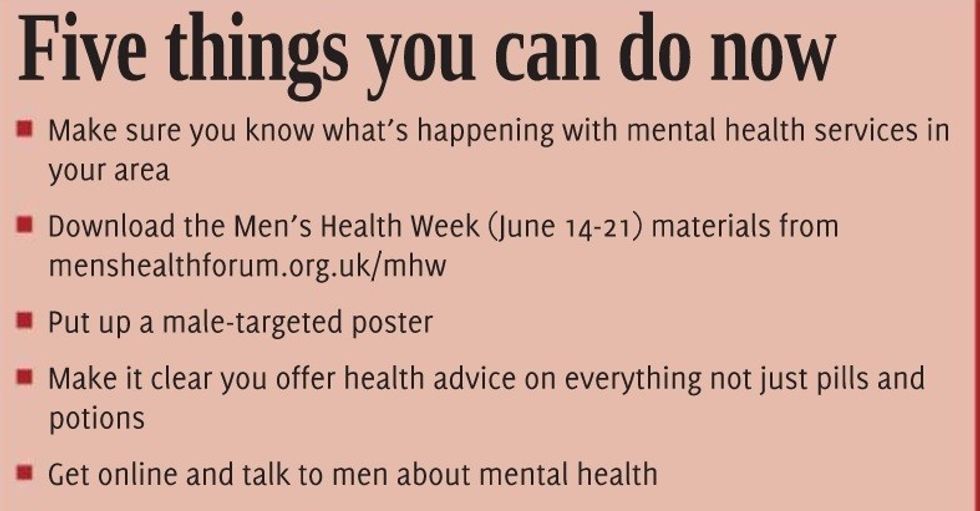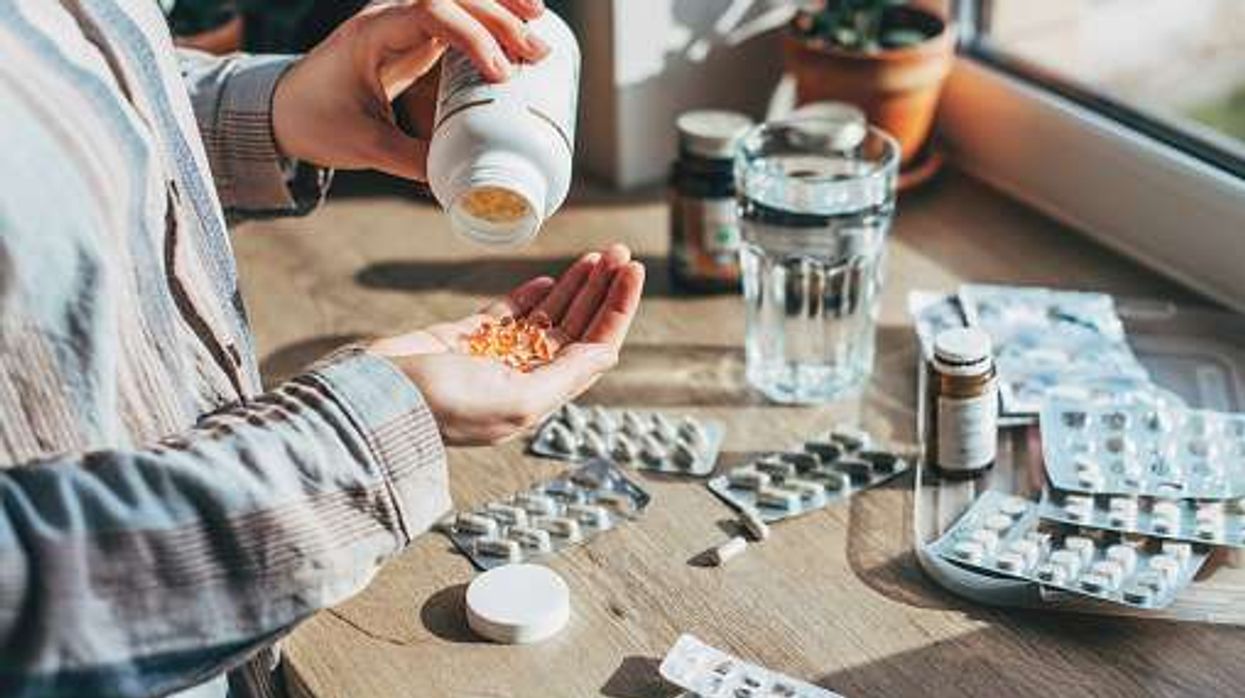Jim Pollard says Men’s Health Week this month could be an ideal opportunity to reach out to the men who use or pass through community pharmacies…
Men’s Health Week this month focuses on better mental health in a Covid world. Even before the pandemic there was a grave crisis in male mental health and very little that has happened in the last 18 months has helped that. Rather the opposite.
Getting men through the door of any health service, even one situated on their high street, is not easy. Does the opening up after lockdown give you a chance to improve that?
More than any other health outlet, pharmacists are uniquely placed to get health messages to men. Easier to access than GPs. More convenient opening hours. Addressing men effectively could make a big difference to both men’s health and your bottom line.
Stress the aspects of your services that might appeal to men: free, confidential, anonymous (no need even to give your name) and no need to make appointment. If there is a private space available, make that clear.
Perhaps one of the simplest things you can do is to put up posters in the window. Now, more than ever, that matters. Men are as confused about the guidance as anyone else. And as to their feelings? That’s even tougher. Are we out of the woods or is there another wave round the corner? Can I go on holiday? How effective is the vaccine? Is it safe to go to the pub? And then there’s the bereavement.
The free Men’s Health Week material - both posters and social media shares - can help here. Get our mental health posters on display. They encourage men to talk about the Covid-related things they may not feel able to talk about.
As a shop team, you could take part in the ‘Can Do’ challenge which is based on the idea that there are five days of the week and five ways to wellbeing – can you see where we’re going with it?
The Forum is also calling for men’s health strategy to complement the women’s health strategy that the government has already promised. Get your customers to sign the petition.
Men coming in for prescriptions are a captive audience. What about the bag you put medicines in? Does it have leaflets in it or information on it? Give out mental health information targeted at men with every prescription and every sale. Make a joke of it – ‘every purchase comes with a free leaflet’.
Be age sensitive. Young people may have had less to fear from Covid itself but they’ve taken a big hit from the measures we’ve taken to deal with it - work, education, relationships and social life have all suffered with a massive knock on effect on mental health.
Ask, when serving: ‘is there any other health information you’d like?’ You can play an important triage role here. There is some evidence that men are more likely to see a GP on the advice of another health professional. And this is doubly important at a time when there is evidence that non-Covid conditions including mental health are being neglected. Not wanting to burden the NHS is a great excuse for the reluctant patient.
Covid-19 could change a lot, including the way we see pharmacies. Men tend to think of them as female spaces. At my local store it is, from the street, hard to see a single product aimed at men. Inside it smells like a perfume factory and women’s bodies – in the form of advertising – are plastered everywhere.
We understand your product range is partly to do with supply and demand but if you have nothing for men to buy, you can’t really complain that we don’t come in. If we don’t come in, we won’t realise how helpful you can be. It makes commercial sense to attract new customers too.
There’s no need for loads of products – too much choice often puts us off – just a decent range put together by men who know what men actually buy (rather than what we might think they ought to buy). Again, in the current climate, make it as easy as possible and make sure it includes what men might want but not know how to ask for including protective gear and gel.
In the self-service age, pharmacies are one of the few places where you still have to go up to the counter and ask for what you want. Men don’t like this. There are good regulatory reasons why some products need to be secured but not all. Newsagents solve a similar problem by using a higher shelf.
Exactly what you can do will depend on local arrangements and your space but right now men (and women) may be more willing to use pharmacies than NHS services. Can you team up with local doctors or men’s health organisations?
Covid-19 has forced all service-providers and retailers to think outside the box. Take the opportunity. Social media is inundated with community groups and initiatives, get in there with them. If men (and women) are less likely to come to you, you need to go where they are (online) and show you know what they need and want.
The way retail operates is going to change but the key objective- getting and keeping customers- will not. Design your pharmacy to get men using it and keep them using it. This is nothing new. Retail outlets have been doing this for years. It’s just a question of applying them to men’s mental health in a Covid-19 world.
Jim Pollard is editor of Men’s Health Forum.












